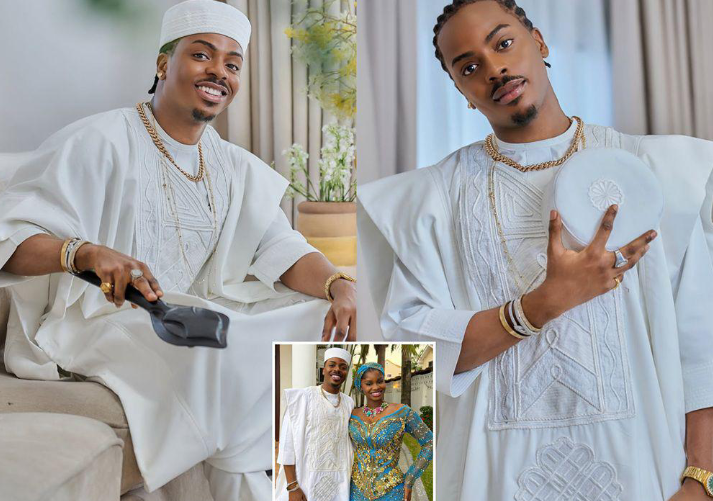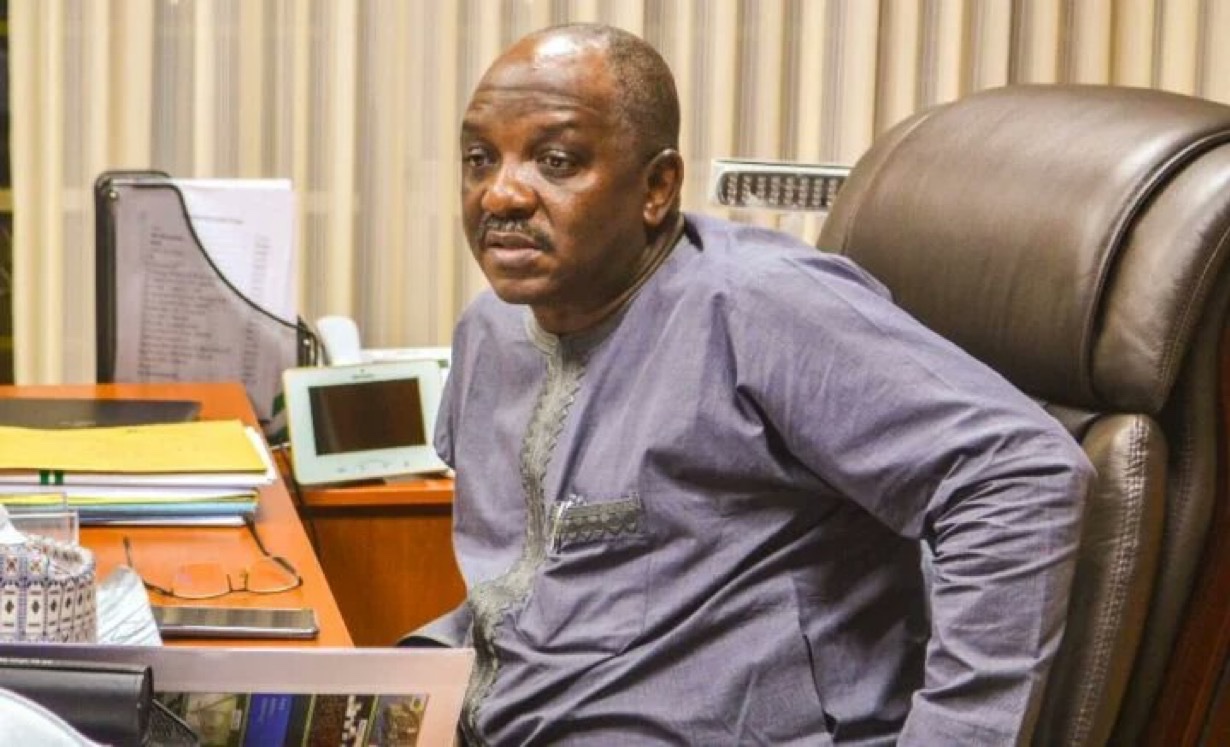
“Your Time Never Pass!” — Terry G Blasts Nigerians for Dumping Music Legends Like Yesterday’s News
In a passionate and unapologetic outburst that has sent shockwaves through social media, veteran Nigerian musician Terry G has lashed out at what he calls the “chronic disrespect” shown to music legends in Nigeria. Known for his wild energy and eccentric personality, the “Akpako Master” took to his X account
In a passionate and unapologetic outburst that has sent shockwaves through social media, veteran Nigerian musician Terry G has lashed out at what he calls the “chronic disrespect” shown to music legends in Nigeria. Known for his wild energy and eccentric personality, the “Akpako Master” took to his X account (formerly Twitter) on June 25, 2025, to slam Nigerians for what he described as a cultural pattern of quickly discarding music veterans once they are no longer trending.
Terry G, whose real name is Gabriel Oche Amanyi, held nothing back in his posts, expressing deep disappointment over the way seasoned musicians are often treated like expired goods in a country that thrives on fleeting fame. According to him, Nigeria has a toxic tendency of writing off pioneers the moment they’re no longer dominating the charts, calling it both a cultural and mental failure.
“I hear people say, ‘Your time don pass!’ — and it sounds like brain damage,” the artist wrote. His blunt phrasing immediately caught the attention of fans and critics alike, drawing thousands of reactions and sparking a fresh debate about how Nigeria treats its music icons.
Using the West as a mirror to reflect this growing issue, Terry G compared the reverence shown to American stars like Jay-Z and Beyoncé—artists who continue to enjoy legendary status even when they’re not releasing new music—with the disdain and disregard often faced by Nigerian legends. “In the West, legends are respected for life. No one calls Jay-Z or Beyoncé outdated. Their impact is honoured. But here in Africa, especially Nigeria, we’re quick to discard our own,” he declared.
The critique didn’t end there. Terry G connected this musical disrespect to a deeper cultural self-loathing. “That’s why we believe our ancestors were evil, while Western ancestors are seen as gods,” he added in a bold statement that stirred both introspection and backlash. It was a moment of reflection that forced many Nigerians to ask themselves: why do we forget so easily? Why do we treat our trailblazers like relics?
Social media lit up in response. Some fans applauded Terry G for saying what needed to be said, while others accused him of being bitter and irrelevant. But even among his critics, there was a reluctant admission that he had touched on a bitter truth—Nigeria often celebrates fame more than legacy, and once the flame dims, the artist becomes a punchline.
Terry G, who once dominated the Nigerian music scene with his unpredictable sound and unfiltered lyrics, has himself experienced the brutal cycle of adoration and abandonment. From street anthems like Free Madness to high-energy collaborations that shook dance floors, his influence on the Afrobeat scene in the late 2000s and early 2010s was undeniable. He pioneered a unique sound that mixed street slang, chaotic beats, and religious undertones—a style many younger artists would later emulate.
Yet in recent years, Terry G has found himself on the receiving end of snide comparisons and unwarranted shade. Not long ago, he publicly blasted people for comparing him to controversial artist Portable, calling it a gross insult to his legacy. “Comparing me to Portable is disrespectful,” he fumed. And in another viral comment, he boldly stated, “I gave artistes the liver to smoke on screen”—a not-so-subtle reminder of how he pushed boundaries that were once considered taboo.
While some dismiss these statements as rants, others see them as a desperate but necessary attempt to force a conversation long overdue. Nigeria’s music industry has grown by leaps and bounds, producing global icons like Burna Boy, Wizkid, Davido, and Tems. But in the glitz of new fame, the industry often forgets the groundwork laid by artists like Terry G, 2Baba, Tony Tetuila, Eedris Abdulkareem, and many others who paved the way during more challenging times.
This culture of erasure, Terry G argues, is dangerous—not just to artists, but to the industry itself. “Legacy should be protected, not ridiculed,” one of his supporters tweeted in response to the thread. “We can’t keep acting like those who came before don’t matter just because they’re not trending.”
Ironically, the Western world continues to honour its musical forebears with awards, documentaries, museum exhibits, and hall of fame inductions, even decades after their prime. Legends like Aretha Franklin, Prince, and Tupac remain etched in public memory, celebrated by both older and younger generations. Nigerian artists, on the other hand, often fade into obscurity unless they remain hyper-visible or rebrand themselves entirely.
As Terry G’s words continue to ripple across the internet, many in the entertainment industry are quietly acknowledging the bitter truth he voiced. Industry observers have long pointed out that Nigeria lacks a robust archival or hall-of-fame culture for music, comedy, or film. While platforms like the Headies occasionally try to honour lifetime achievers, the broader societal respect for these figures is sorely lacking.
Terry G’s online outburst is not just about him—it’s about an entire generation of artists who revolutionized Nigerian music during the post-2000 boom. These artists worked without the benefit of streaming platforms, global collaborations, or international tours. They thrived off raw hustle, bootleg CDs, and Alaba mixtapes. And now, many of them are quietly fading away, their contributions reduced to nostalgia or dismissed entirely.
By sounding the alarm, Terry G has reopened the floor for conversations that go beyond trends and clout. He’s reminding Nigerians that music legends are not disposable. That history matters. That if we continue to disrespect our pioneers, we risk erasing our own cultural identity.
In a world obsessed with the new, the shiny, the trending, it takes courage to speak for the forgotten. Whether you see Terry G as a legend, a troublemaker, or a man grappling with his own fading fame, one thing is certain—his message has struck a nerve. And maybe, just maybe, it’s time Nigeria listens.
Share this post
Related Posts

Uncle Enioluwa Stuns Guests as He Brings His Signature Energy to Priscilla Ojo’s Son Rakeem’s 40th-Day Celebration
The entertainment and lifestyle space in Nigeria has once again been lit up by none...

EFCC Plays Video Evidence in Former Minister of Power Saleh Mamman’s ‘N33 Billion Fraud’ Trial
In a significant development in the ongoing legal battle against corruption in Nigeria, the Economic...

TikToker Peller Claims She Rejected Netflix\'s \'3 Billion\' Offer for Boyfriend\'s Kissing Scene
In a surprising revelation that has sent social media into a frenzy, popular TikToker Peller...